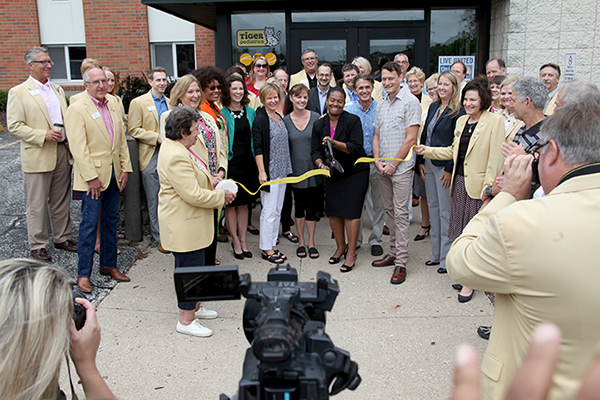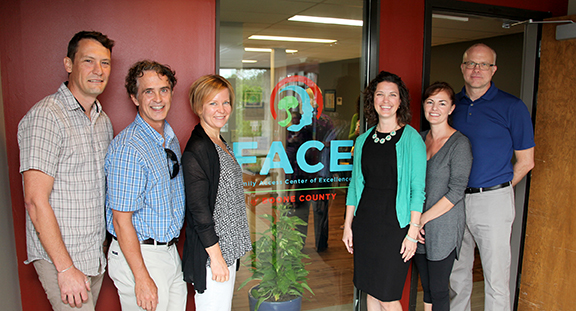Family Access Center for Excellence (FACE) Opens to Offer Mental Health Access

The Family Access Center for Excellence (FACE) initiative opened its doors on Aug. 15 as a unique collaboration to offer the citizens of Boone County one-stop access to quality mental and behavioral health services.
FACE brings together University of Missouri researchers, including faculty members from the MU College of Education, the Missouri Prevention Center, Boone County schools, law enforcement, juvenile court, public health and community services departments. The “single entry” concept is believed to be the only kind in the nation. The goal of FACE is to improve access and coordination of services for families and to proactively address disproportionate minority contact with the juvenile justice system.
“Currently, families lack information about how or where to get help, and they have difficulty navigating, accessing, and paying for support services,” said Aaron Thompson, assistant professor in the School of Social Work and associate director of the Missouri Prevention Center. “These difficulties prevent people from receiving the mental health services they need.”
If families are aware a child is experiencing challenges—the current system offers no single entry point and families often feel confused as to how to access the right services. Other concerns such as cost and transportation present barriers to service access as well. Families also struggle with what to do after their initial appointment. FACE will address these concerns by offering family and youth-focused assessments, case management, and professional support to address these common barriers.

“More than 50 percent of families that go to their first appointment with a service provider never return for a follow-up appointment,” said Wendy Reinke, professor of educational, school and counseling psychology in the MU College of Education and Director of the Missouri Prevention Center. “At FACE, families will be able to talk to a professional, access information, understand options, be empowered to make choices and receive check-ins and support from FACE staff familiar with their situations.”
Media Coverage
Erin Reynolds, executive director of FACE, says staff will help families determine an “action plan” that works for the child and his/her family and will offer options for additional services. Services may include child abuse prevention, substance abuse programs, temporary shelter for youth, respite care for parents of children with mental illnesses and psychological services. Larger-scale public health initiatives may improve access to services; however, they may not improve family functioning. She says that the FACE program is aimed at improving services from the ground level—including support for local social service agencies and providers in the form of training and technical assistance to implement evidence-based practices and programs.
According to MU researchers, no reliable data exists on the number of underinsured or uninsured families in Boone County. However, FACE, a $4.1M project funded for 3 years by the Boone County Children’s Services Board, will monitor families and provide data to Boone County government offices to develop a system that more accurately estimate that number and monitor the success of investments in social programs across the county. One indicator of success will be to reduce the number of children referred to the juvenile court system.